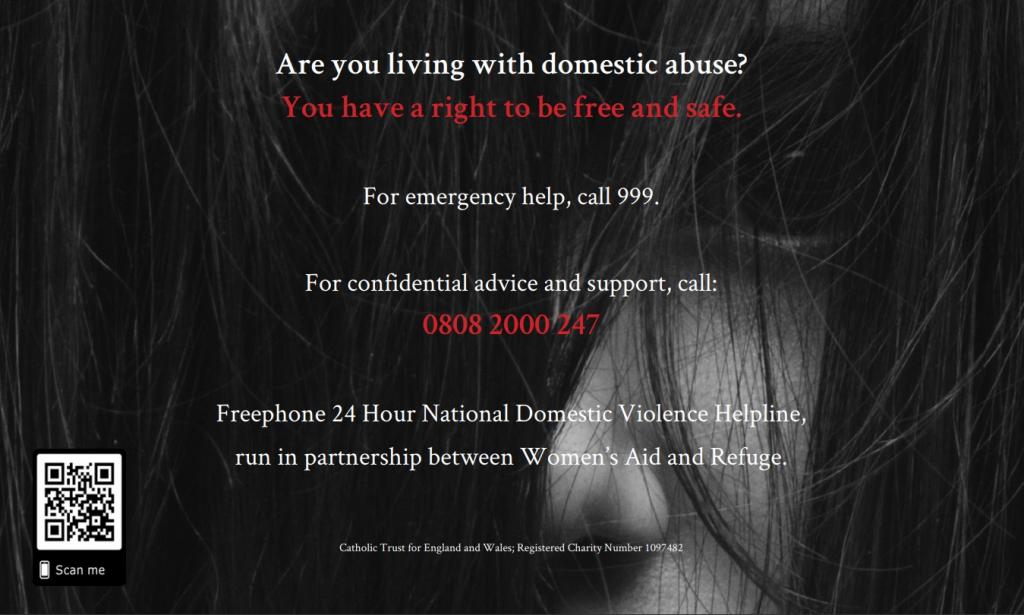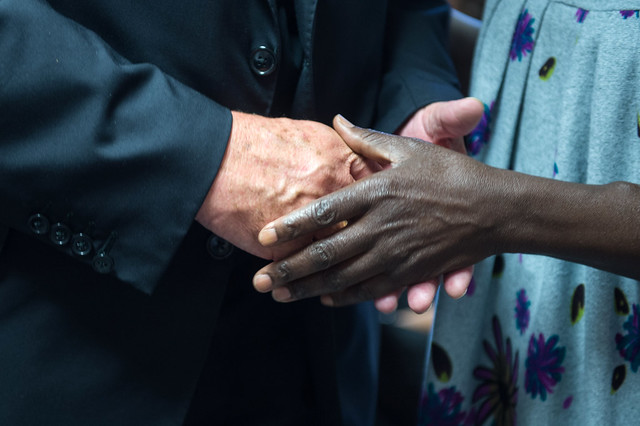The Bishops of England and Wales write:
One in four women and about one in six men suffer from domestic abuse in their lifetime. Two women are killed every week in England by a partner or ex-partner.
We acknowledge that men, women and children suffer domestic abuse at the hands of husbands, wives, parents and other family members. Violence of this kind should never be tolerated or justified. It is an offence against the dignity of the human person.
The Church is recognising the hurt done to those who have experienced domestic abuse. Pope Francis writes: ‘Unacceptable customs still need to be eliminated. I think particularly of the shameful ill-treatment to which women are sometimes subjected, domestic violence and various forms of enslavement which, rather than a show of masculine power, are craven acts of cowardice. The verbal, physical, and sexual violence that women endure in some marriages contradicts the very nature of the conjugal union.’ (Amoris Laetitia 54)
Greater awareness of the scourge of domestic abuse is a positive development as it is the first step towards addressing a serious moral and social problem.
In particular we wish to highlight the need for public education and action regarding domestic violence, especially against women. Such violence includes many forms of non-physical intimidation such as persistent verbal abuse, emotional blackmail and enforced social or financial deprivation. It may occur in any type of close adult relationship. For those who are experiencing domestic abuse, the home is far from being a place of security and self-fulfillment. Too often it is a place of pain, fear, degradation and isolation.
The most effective way in which Catholics will be able to help men, women and children who are victims of domestic violence is by giving their support to existing groups and projects and by assisting in the spread of awareness and information.
In our parishes it is very important for all of us, priests and parishioners, to be alert, to be sensitive, and from time to time to use the opportunities we have in preaching for example to speak of the dignity of human beings and to emphasise the equal dignity of women and men; particularly within marriage.
We also have a culture of safeguarding which is part of the life of the Catholic Church in this country. It is important for those involved in this work to be aware of and alert to the particular problem of domestic abuse.
Domestic abuse is often a hidden problem, and our aim is for anyone experiencing domestic abuse to feel able to have confidence to seek help within the Church setting.
Day for Life is the day in the Church’s year dedicated to raising awareness about the meaning and value of human life at every stage and in every condition. The Church teaches that life is to be nurtured from conception to natural death.
For more information and resources, please visit www.dayforlife.org .





